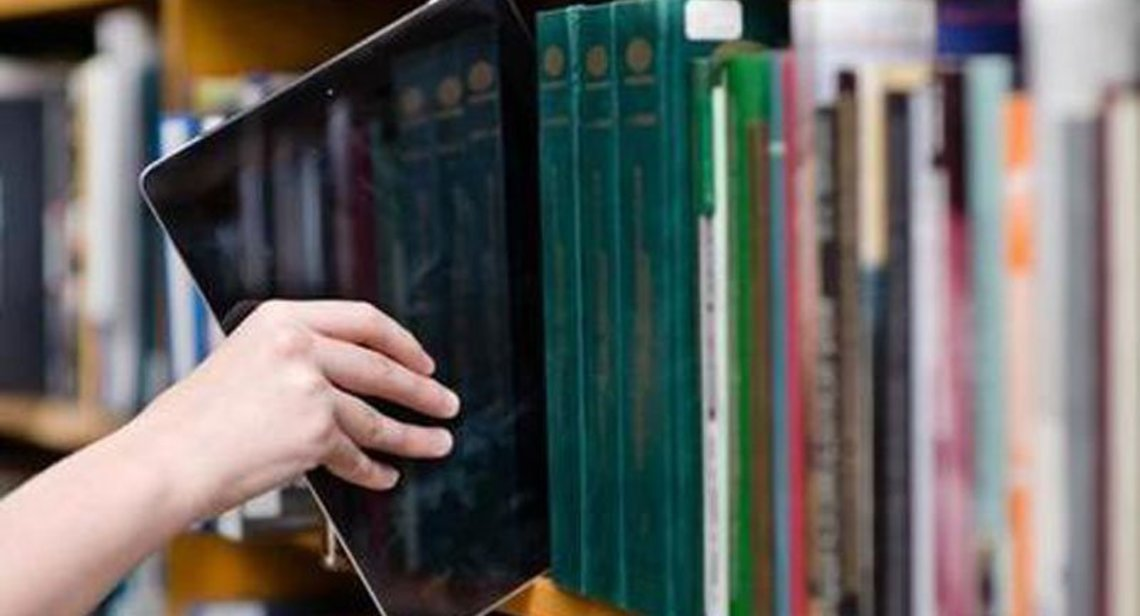Free access to computers, digital awareness workshops, assistance with administrative procedures, "media education" workshops to develop discernment with regard to online information, etc. Touching a variety of audiences (young people, the elderly, parents, etc.), and having social and cultural animation skills, libraries have many assets to support the public towards digital empowerment
Their commitment to digital inclusion is hampered by problems of space planning and low recruitment.
According to the Gazette.fr, " the prospect of future recruitments among the 4,000 digital advisers financed under France Relance is a wake-up call" in libraries.
As Malik Diallo, president of the Association of Directors of Municipal Libraries (ADBGV) explains, "librarians have welcomed this proposal. It corresponds to a need and it is an opportunity.
"Indeed, despite efforts in terms of personnel, many recognize a lack of time but also of means to accompany users in difficulty. Creating an e-mail box, printing a CV, consulting taxes, etc. is a new profession, in its own right, that deserves to be created.According to the website Paroles d'élus, 1500 communities have already expressed their desire to host a digital advisor, most often in their media library.
Références :
Media libraries clearly identified by the public as places of digital mediation
The Digital Agency had introduced in the 2018 edition of the Digital Barometer a series of questions to better understand how the French cope with the difficulties they encounter when using computer and digital tools. They were also asked if they knew of a place near their home that offers support in online procedures and digital learning.Five choices were submitted to them as "places where we offer support in online procedures and digital learning": Maison de service au public (MSAP), Espace public numérique, Media library, Cyberbase, other place such as a fablab or a ressourcerie.
- 7 out of 10 people know at least one of these places
- Of the five possible locations, media libraries were cited most often: 63% of respondents knew of one near their home.
- 22% know of a digital public space near their home, and 14% know of a public service center (MSAP).
- Across all population groups, media libraries were most frequently cited: from 47% for non-graduates to 72% for college graduates, for example.
Référence :
Libraries, digital and inclusion: how far can we go?
The ADBGV (Association of Directors of Municipal Libraries and Intercommunal Groups of French Cities) will devote its annual study day on October 9, 2018 in Grenoble to the role of libraries in digital inclusion.How to meet the needs induced by the rise of digital? What is the place of the library in a local digital inclusion policy? How far should we go? Can we meet all the needs induced by the rise of dematerialization and e-administration? What complementarity within cities?Read moreRéférences :
How-to cards for digital mediation in libraries
Auvergne Rhône-Alpes Livre et Lecture shares a series of practical information The sheets present each one a mediation to be developed with the public."Each of the sheets presents a mediation project to be developed with the public. Each sheet can be used to get an idea off the ground, as a support for building the project independently, or as a way to discover and meet a resource structure to imagine a joint project or ask for an expert.Référence :
Digital inclusion in libraries: views and experiences
The Ministry of Culture's 2018 Libraries Plan had expanded the missions devolved to libraries. As actors of social inclusion, they must "promote digital inclusion and actions carried out in the social field." These orientations were endorsed in the 2018 national strategy for an inclusive digital and by the launch in 2019 of a working group around the issue of digital inclusion in libraries.The recent provisions of the Recovery Plan for digital inclusion provide substantial resources for the training of digital mediators. Libraries are among the potential locations for future digital advisors recruited under the Recovery Plan.
The Bulletin des Bibliothèques de France has just devoted its latest issue to issue to digital inclusion practices and devices in libraries, with experiences and case studies.
Référence :
How libraries became administrative reception points
While many procedures are going digital, due to the lack of alternative or sufficient support offered by the administrations concerned, vulnerable people and more generally people who are not at ease with digital technology, tend to turn to local actors (town halls, social centers, CCAS, etc.) or solidarity actors such as Emmaus, the Red Cross, Secours Populaire or Secours Catholique) in order to find the expected help.These people, having difficulty with their administrative procedures, sometimes turn to libraries and media libraries. Present throughout the country (there are 17,000 libraries and "reading points" in France and 38,000 librarians), equipped (nine out of ten libraries even had at least one public computer in 2015), having largely initiated their digital transformation, libraries also enjoy an excellent image with the public.
Read moreSources
- 1. The Gazette: Digital advisors eagerly awaited in libraries
- 2. What elected officials are saying: Digital advisors are eagerly awaited in communities
- 3. Media libraries clearly identified by the public as places of digital mediation
- 4. ADBGV Day "digital and inclusion: how far can we go?"
- 5. Prepare and take the Adult Computer and Internet Certificate (B2IA) in a library
- 6. For a recognition of libraries in digital inclusion
- 7. Eurekoi
- 8. New website for Eurekoi.org : ask your questions to librarians
- 9. Coralie Chapuis: Question-answer services: between harmonization of professional practices and personalization of the response to the user, thesis for the Master esDOC, University of Poitiers
- 10. Resource: Digital mediation, in libraries and elsewhere (2020)
- 11. Libraries and digital inclusion





